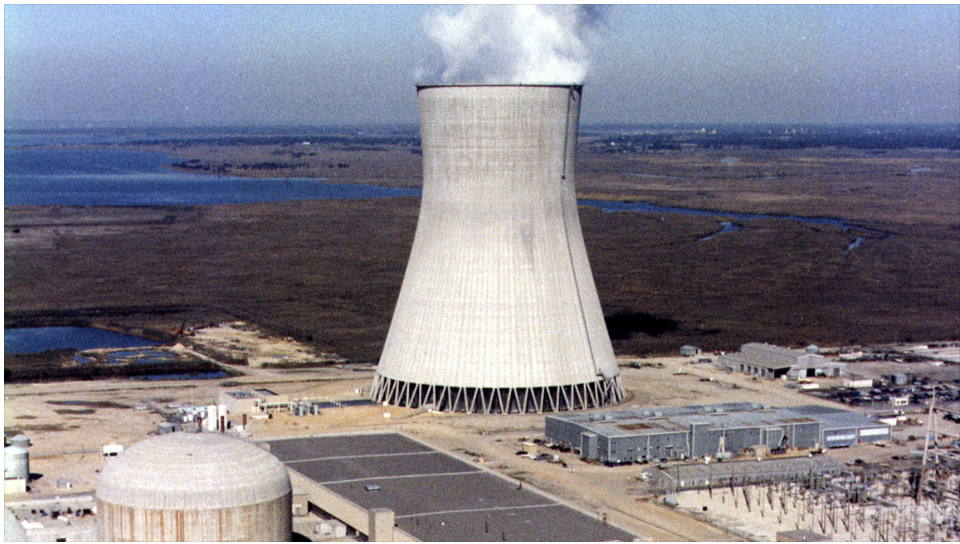Feds step in and look to cover some costs of NJ nuclear plants
TOM JOHNSON, ENERGY/ENVIRONMENT WRITER | FEBRUARY 22, 2024 | ENERGY & ENVIRONMENT
Financial assistance from Washington could result in refunds for utility customers

Credit: (Nuclear Regulatory Commission; CC BY-NC-ND 2.0)
Hope Creek generating station, Unit 1
Major federal assistance is starting to roll into New Jersey from the federal Inflation Reduction Act, a 2021 law signed by President Joe Biden designed in part to help usher in a clean-energy economy, with its impact soon to be felt by the energy sector and its customers.
Portions of the federal law started to take effect this past January, helping trigger the Murphy administration’s order last week that New Jersey’s electric utilities stop charging customers a controversial surcharge costing $300 million a year, a step taken to avert closing of three nuclear power plants in the state.
The state’s more than 3 million utility customers will continue to pay the charge for another 15 months. But they could also be looking at a hefty refund eventually from the owners of the three nuclear power plants in South Jersey, which provide more than one-third of the state’s electricity.
The end of the surcharge, effective June 1, 2025, is a significant step, given the wave of increases ratepayers have absorbed in recent years as New Jersey tries to transition away from fossil fuels and fight climate change.
Modernizing the power grid, electrifying the transportation sector, investing in solar energy and reducing energy consumption have all led to higher prices for consumers with no signs of letting up anytime soon, advocates have said. The federal aid might provide some relief.
“That’s good news for ratepayers,’’ said state Sen. Bob Smith, a Democrat from Middlesex County who has sponsored many bills aimed at curbing emissions contributing to climate change, referring to the federal tax credits replacing the state surcharge. “It’s time to strengthen the grid.’’
Transition to green energy
New Jersey’s plan to decarbonize the economy focuses on electrifying two large sectors that are the largest sources of greenhouse gas emissions: transportation and buildings.
The federal law, touted as the most ambitious climate legislation ever enacted, provides for $370 billion in investments to transition to clean energy. Among its provisions, it will provide lucrative production tax credits to the nation’s nuclear industry of approximately $30 billion. In New Jersey, its three operating nuclear units provide more than 90% of the state’s carbon-free electricity.
Since 2019, utility ratepayers have been paying a surcharge on their monthly bills for the state’s nuclear power plants, a move that proponents argued was necessary to avert shutdown by their owners, Public Service Enterprise Group and Constellation Energy.
At this point, neither the state Board of Public Utilities nor PSEG could say just how much the new tax credits will provide. The Internal Revenue Service issued draft guidance late last year, but it is too soon to say what its final form will be, according to a statement from the agency.
End of ratepayer surcharge
Since the state law creating the surcharge for the nuclear power plants stipulated any federal assistance would offset what ratepayers paid, PSEG and Constellation withdrew applications to renew the state surcharge for a new three-year cycle scheduled to begin in June 2025.
Jesse Jenkins, an assistant professor at Princeton University, believes the eventual refund for ratepayers could be large. With interest, it may approach $450 million.
William Smith, strategic communications manager for PSEG, said the company is still awaiting guidance from the Treasury Department on the terms needed to calculate the tax credit. “We can’t speculate on possible refunds until there’s clarity on those terms,’’ Smith said.
But others, including clean-energy advocates were elated.
“This is a big win for New Jersey,’’ said Doug O’Malley, director of Environment New Jersey, calling the eventual replacement of the surcharge the biggest down payment the state has received yet from the federal government to fight climate change.
Lyle Rawlings, a longtime solar developer in Flemington, described the $300 million annual nuclear surcharge as a significant part of consumers’ monthly bill.
“That coming off frees up a lot,’’ he said.
Raymond Cantor, deputy government affairs director for the New Jersey Business & Industry Association, said the tax credits will help lessen the cost of the state’s and nation’s aggressive clean-energy agenda, but other big bills remain in the future.
“Still, the price tag on everything is astronomical and unknown,’’ Cantor said.
No comments:
Post a Comment